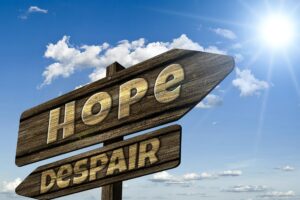As I grow older I find myself increasingly interested in who I used to be. The central question becomes, “Am I the same person I was at 20, 30 or 40? If I’m not, what has changed? What has remained the same?
I invite you to immerse yourself internally in this exercise as I did. Close your eyes and look within yourself as you imagine a “younger” version of you facing important “crossroads” decisions in your life. Do you recognize the “self” that made crucial decisions influencing the direction your life took?
Chances are, you will feel a familiar pull of “core self” in that earlier version of you. You will also see that life’s experiences have changed who you are now. In my case I was relieved to understand that I’m more mature now, more thoughtful, and less impulsive.
Still , there is always that inner “core” of us that provides us with a sense of continuity. Our lives are in fact an ever evolving narrative that has a beginning, a middle story “arc”, and eventually, of course, an ending. Our memories are crucial for preserving that continuity…which is why many forms of dementia are so devastating to people when they literally can’t remember many details of who they are. Sense of “self” implies “continuity” of self.
My belief is that spending time remembering who we are at the “unshakable” core (we could also consider this our “values”)…is essential if we want to maintain sanity in a world that is always changing. This ever-changing world can feel frightening, unpredictable, even threatening.
The important part for me is that, no matter what, I can weather most of these external “storms”, because I know who I am. I will stay solid, and this means I will stay safe. I can count on me.
This also means that I can adjust to changes within me…such as the aging process and the inevitable effects of gravity on my body…. because as long as I’m alive I’m essentially still me. The essential me, I might even argue, is actually timeless. My belief is that the essential me will even live on beyond me…through people who knew me well.
These thoughts, and this perspective give me comfort.
I hope they can do the same for you.

